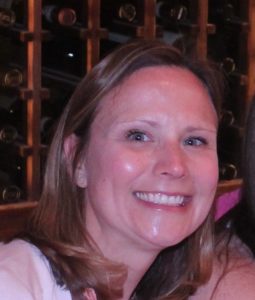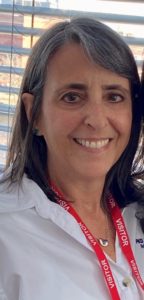Published April 28, 2020 | After the ADPKD Registry launched in September 2019, PKDF established the Registry Patient Advisory Group. The advisory group is pivotal in informing the Registry program how to maintain a patient-centric approach to our research activities—and they’ve already proved to be an invaluable resource. Whether it’s thinking through participant engagement, communication strategies, or research questions of interest to the patient community, the Registry Patient Advisory Group is driven to make the Registry as useful as possible. Meet the men and women making this program a success.
Why have you chosen to be a part of the advisory group for the Registry program?

Amy Manelli
Amy Manelli: The PKD Foundation is focused on funding research for treatments and a cure for PKD. I see the Registry as an important step in bringing research and the PKD patient community closer together. As a PKD patient, I hope to do my part to ensure this tool is helpful in that process.
What part of participation in the advisory board excites you most?
Dwight Odland: With my long-time volunteer experience, I can help the PKD Foundation craft promotional materials and help the Registry questions to be more compelling and clearer to PKD patients. In turn, perhaps more patients will complete the questionnaires and the Foundation will get higher quality data as a result.

Dwight Odland
How does the patient voice improve the Registry?
Judy Ehrlich: The patients’ voices are the Registry.
How do you see the Registry as a tool to amplify the patient voice?

Judy Ehrlich
Judy Ehrlich: The ADPKD Registry will be the largest collection of patient experiences with their disease that has ever existed. No one knows ADPKD like those of us who live with it and have lived with it through generations in our families. If we all share our information and experience through the Registry, we’ll provide direction on what needs to be studied, where the greatest clinical challenges lie, and how to most effectively move forward with vital research into the treatments we all need and deserve.
How are patients and their input fueling positive changes in research?
Amy Manelli: I think all of us would like to find a cure for PKD. In the interim, finding treatments that prolong the life of kidneys and improve quality of life with minimal interruption to our daily lives is critical. Some treatments may be able to slow or stop the progression. However, if the side effects negatively impact a patient’s daily life too much, it may not be worthwhile. Patient input helps inform researchers so they can focus on treatments that can have the desired impact with tolerable side effects.
How would you like to see more people engage with the Registry and the PKD Foundation?

Nicole Harr
Nicole Harr: The Registry is critical to advancing PKD research and improving the quality of life for everyone living with PKD. I hope more and more patients will join the Registry and support research for future generations.
What does the PKD patient community mean to you?
Dwight Odland: The PKD patient community is my extended family. After getting to know more than 500 PKD patients over the past 15 years, I feel like I have a deeper understanding of their needs, fears, and hopes. Being involved with the community is a humbling experience. In return, I want to do everything I can to help my fellow patients.
How does PKD patient engagement and awareness of new research benefit the community from your perspective?
Nicole Harr: Research gives me hope for a future with treatment options available for patients and the potential for a cure.
Check out an animated video on the Registry webpage to find out more about what participation looks like.
The ADPKD Registry is the first nationwide database of patients with ADPKD. Collecting information in a standardized format tells us about the patient journey, unmet medical needs, patient preferences, and reveals more about the disease experience. To further PKD research, join the Registry today. Already a part of the registry? Make sure you’ve completed all our modules—they’re vital to the program.









This is a fantastic resource to share , communicate and engage the PKD Community. Not everyone can attend their local PKD Chapter meetings to stay informed of community events, learn about breakthroughs in research and provide unique individual input I look forward to participating in this new endeavor.
I’m 67 still have active kidneys! I have 25% function and need to know a pkd diet that will help me keep what I have left!